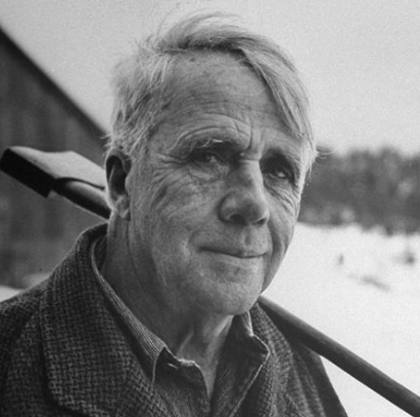Robert Frost

Robert Frost (1874-1963) was an American poet who is widely considered one of the most important and influential poets of the 20th century. He was born in San Francisco, California, but spent most of his childhood in New England, where he developed a love for the natural world that would later become a major theme in his poetry. Frost attended Dartmouth College and later Harvard University, but he did not graduate from either school. Instead, he worked a variety of jobs, including as a teacher and a farmer, while also writing and publishing poetry. In 1912, he moved his family to England, where he became friends with several prominent poets, including Edward Thomas and Rupert Brooke. Frost's first book of poetry, A Boy's Will, was published in 1913, followed by North of Boston in 1914. These books established Frost's reputation as a major poetic voice, and he went on to publish many more volumes of poetry over the course of his career. Frost's poetry often explores themes of nature, rural life, and the human condition. He is known for his use of traditional forms and meters, as well as his skillful use of language and imagery. Some of his most famous poems include "The Road Not Taken," "Stopping by Woods on a Snowy Evening," and "Mending Wall." Frost was awarded the Pulitzer Prize for Poetry four times during his career, and he was also awarded the Congressional Gold Medal in 1960. He died in 1963 at the age of 88, leaving behind a legacy as one of the greatest poets of his time.
| |
|
|
|
|
|
|
